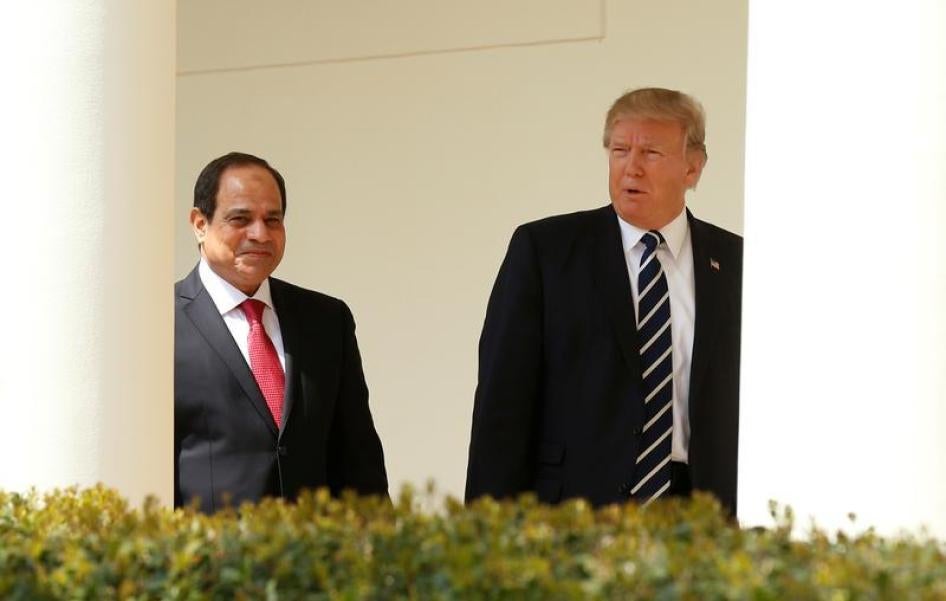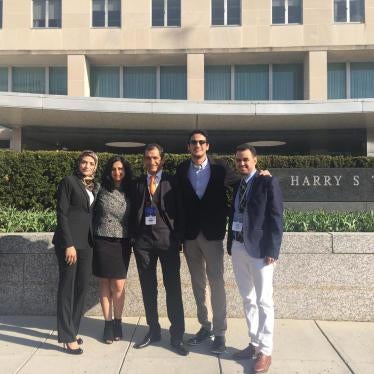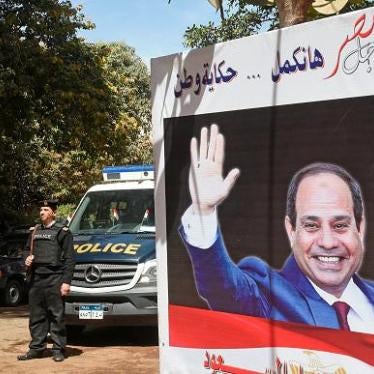In early February, Egyptian President Abdel Fattah el-Sisi proposed constitutional amendments in a move that, if successful, will further enhance that country’s authoritarian rule. The amendments — which are expected to be approved by parliament by the end of the month — will dramatically expand military control over the government and undermine judicial independence.
It is with this process underway that President Sisi will visit the White House next week, on April 9. He and President Trump will no doubt make common cause as they did during their last encounter, and that’s why Americans, including New York’s substantial Egyptian-American community, should take an interest. But it’s not the only reason: Egypt annually receives $1.3 billion in security assistance from the United States.
In 2013, when Sisi ousted Egypt’s first democratically elected president, Mohamed Morsi, in a coup, Sisi promised to bring stability, security and democracy to the country. Over the last six years, however, we’ve seen just the opposite. Sisi’s government has increasingly deployed a campaign of brutality that is fueling anger and resentment.
Security forces have escalated their tactics of intimidation and violence across the political spectrum: Morsi’s fellow Muslim Brotherhood members, political opposition groups, bloggers, journalists, critical thinkers and peaceful activists have been arrested, detained, tortured and, in some cases, flat out disappeared.
My organization, Human Rights Watch, believes at least 60,000 people have been arrested on political grounds, but the number is likely much higher. This number includes Americans — and even New Yorkers — who have been detained in dreadful conditions. One of them is Moustafa Kassem, who got swept up in a violent protest when visiting family in 2013. He’s since been charged with trying to overthrow the president and sentenced to 15 years in prison. His family says his health is in grave danger and that he’s had to resort to a hunger strike to draw attention to his case.
Another imprisoned New Yorker is Khaled Hassan, a limo driver accused, without evidence, of joining the Islamic State. He was held in secret detention for months, where he was raped and tortured by prison authorities. He’s still in prison.
Meanwhile, Egyptian activists have been banned from overseas travel and had their assets frozen while parliament, heavily dominated by former security officials, has passed severely restrictive laws to curtail freedom of speech and access to information. Just last week, two well-known Egyptian actors — Amr Waked and Kal Naga — were demonized, defamed and called “terrorists” and “traitors” for participating in an advocacy day in Washington, D.C. If they return to Egypt they will probably be thrown in prison.
Trump ignores all of this. When he met with Sisi this past September, Trump said he was an “outstanding friend” and congratulated him on “an outstanding job with respect to terrorism.” But Sisi’s approach to fighting terrorism is one that centralizes power, starves institutions of any independence and silences criticism. Ultimately it’s an ineffective strategy, especially given that insecurity is on the rise throughout Egypt.
And while it’s impossible to know the extent of public opposition in a country where speech is constrained, access to information is limited and political opponents are frequently arrested, just last week I spoke with a number of Egyptians and Egyptian-Americans who quietly shared anecdotes about the creative ways in which opposition to the government’s tight grip has been growing.
With the constitutional amendments waiting in the wings, the stakes for Sisi’s U.S. visit are greater than ever. A White House meeting at this pivotal time shows Sisi is trying to legitimatize his crackdown and shore up support.
Americans should demand a different approach, and New Yorkers have a particular interest in doing so — in part because Trumps pays special attention to this city, because fellow New Yorkers are locked up in Egypt in appalling conditions, and because of the thousands of Egyptian Americans who call New York home. Egypt’s repression is off the charts; outside voices are essential.









